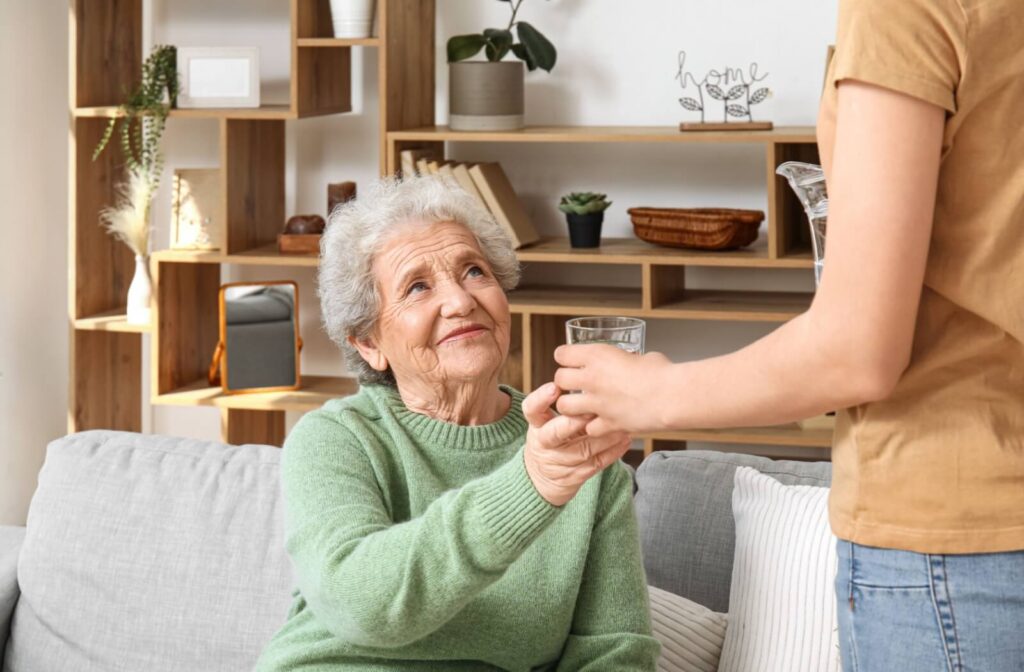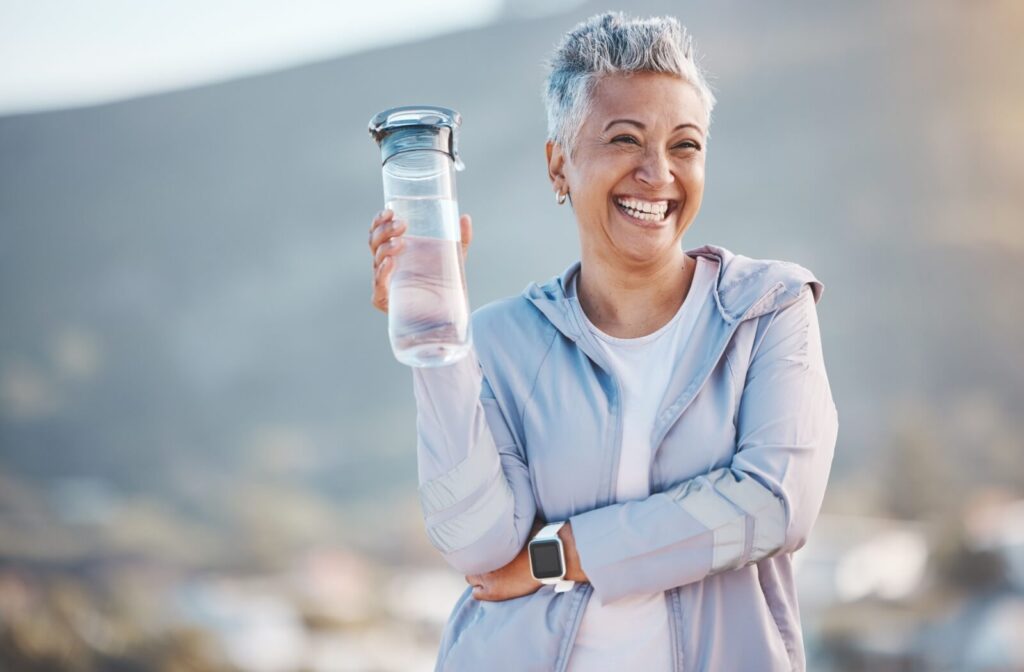Proper hydration is one of the simplest ways to support everyday well-being. It’s not a small thing—it’s an important factor when trying to stay active and independent. For older adults, hydration is the foundation of a healthy lifestyle.
Hydration is crucial for the physical and mental well-being of older adults. It helps the body function, promotes comfort, and reduces the risk of dehydration-related complications.
By staying hydrated, older adults can maintain their daily independence and lead healthier, more active lives.
The Benefits of Staying Hydrated for Seniors
Drinking enough water may sound simple at first. However, it’s more important than most people think. For older adults, hydration supports essential bodily functions, including digestion, circulation, and temperature regulation.
Staying hydrated also boosts energy levels and improves cognitive clarity, which helps older adults maintain their independence in everyday life.
Hydration is especially important for seniors. Over time, the body’s ability to retain water decreases and decreased kidney function can increase the risk of dehydration. Proper hydration isn’t about avoiding thirst—it’s about maintaining comfort and quality of life.
How Dehydration Affects Seniors
The effects of dehydration on a senior’s mind and body are serious. Dehydration can be extremely dangerous and lead to all kinds of long-lasting effects.
Dehydration can lead to:
- Kidney stones & urinary tract infections
- Chronic constipation
- Reduced kidney function
- Persistent fatigue & weakness
- Increased risk of falls due to confusion or dizziness
- Cognitive impairments, including memory loss
These symptoms can significantly affect a person’s quality of life. When left unaddressed, dehydration can even lead to permanent organ damage.
Are Seniors at a Higher Risk of Dehydration?
The challenges of aging make seniors more vulnerable to dehydration.
Physical changes play a role, but lifestyle and medical factors also contribute. The natural sensation of thirst diminishes with age, meaning seniors may not recognize their need for water, even when their bodies are signaling low hydration.
Medical conditions or medications, such as diuretics and certain blood pressure medications, can further increase fluid loss.
Meanwhile, mobility challenges may prevent seniors from easily carrying a drink or reaching for water as needed.
When trying to help an older loved one stay hydrated, you need to think of all of these factors. Understanding is the first step towards building healthier everyday habits.
How to Recognize Dehydration in Your Loved One
Spotting dehydration early means you can take action before it becomes a bigger concern. Some signs of hydration issues can be subtle, while others are more obvious.
Some common signs of dehydration in seniors include:
- Dark-colored urine or a decline in urination frequency
- Persistent headaches or dizziness
- Dry or cracked skin & lips
- A feeling of confusion or disorientation
- Sunken eyes or noticeable fatigue
If you notice severe signs of dehydration, such as confusion or persistent fatigue, seek medical attention immediately. Prompt attention can help prevent permanent damage.
How to Help a Senior Loved One Stay Hydrated
Hydration is about more than reminding seniors to drink water throughout the day. A combination of accessible solutions can encourage consistent, positive hydration habits.

Simple Tips to Encourage Daily Hydration
Hydration doesn’t have to be complicated, and carrying around a bulky water bottle isn’t the only way to meet your needs. Small changes can make drinking water more natural and manageable.
It helps to encourage your loved one to:
- Keep a reusable, lightweight bottle nearby during the day
- Offer smaller but more frequent drinks instead of large servings
- Use a journal or app to track daily fluid intake
- Flavor water with fruits, vegetables, or herbs to make it more appealing
- Add gentle reminders using alarms or set times to drink water
Each of these steps helps hydration become a consistent part of everyday routines without feeling overwhelming.
Hydrating with Nutrition
Staying hydrated isn’t just about drinks. A variety of water-rich foods can help boost hydration levels. Including these options in meals or snacks is a great way to enhance water intake while adding vital nutrients:
- Cucumbers
- Watermelon
- Oranges
- Strawberries
- Zucchini
- Tomatoes
- Leafy greens
When combined with regular water intake, these foods can help maintain fluid levels comfortably. In senior living communities, convenient, chef-prepared dining makes it easier than ever to enjoy proper nutrition and fluid intake.
Prioritizing Wellness Through Hydration
Even small, consistent changes can have a significant impact on a senior’s overall well-being. These daily hydration habits can help improve energy, focus, and physical comfort.
By making these small changes, older adults can boost their everyday quality of life and lead a healthier, more active life—just like they deserve.
Here at Bentley Commons at Lynchburg, we know the value of small, healthy habits. Every day, we’re proud to support residents while they work towards the life they desire. Here, you’ll always be supported, no matter your goals.
Schedule a visit with our team today—a loving, supportive community is within reach.



